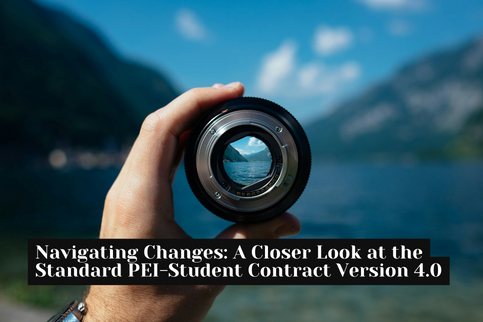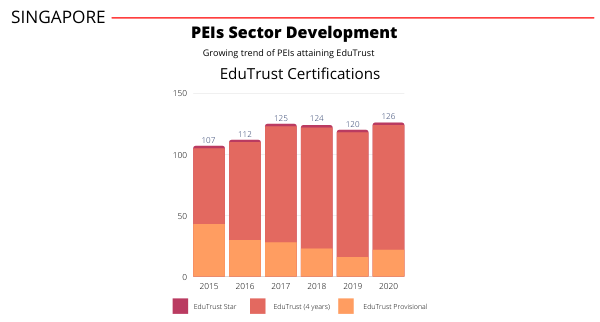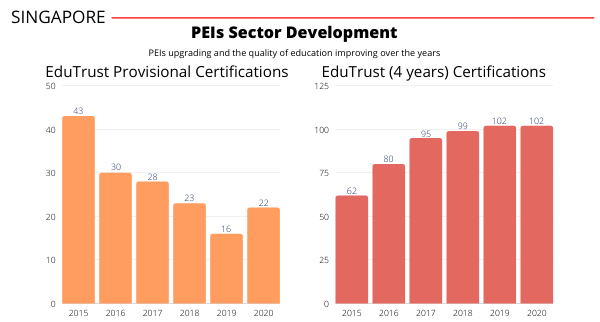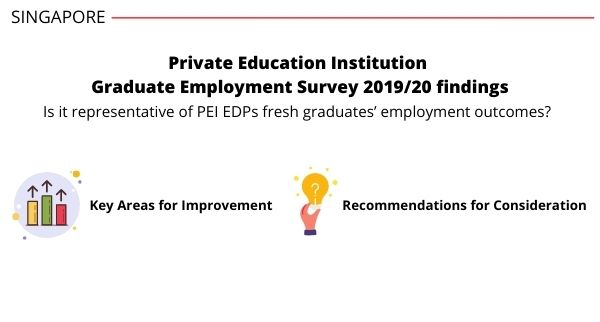Last year in April 2023, Singapore’s private education landscape experienced a significant transition as of the EduTrust Guidance Document Version 3.0 (GD3) to EduTrust Guidance Document Version 4.0 (GD4). This change represented a continuous effort to refine regulatory frameworks and enhance standards within the private education sector in Singapore. Fast forward to April 2024, another crucial change unfolds with the rollout of the revised Standard PEI-Student Contract Version 4.0 (Contract), marking a further step towards ensuring clarity, transparency, and protection for both PEIs and students.
What is Standard PEI-Student Contract
The Standard PEI-Student Contract is an important legal document between PEIs and their students outlining the rights, responsibilities, and expectations for both parties. This comprehensive document covers essential aspects such as course details, fees, refund policies, and other important terms and conditions. CPE, in aiming to enhance the confidence of students and their parents in the quality of education in Singapore, has stipulated that all PEls must sign a PEI-Student Contract with the students or parents/legal guardians (if the student is under the age of 18) prior to the enrolment of each course. Therefore, it’s crucial that these contracts evolve to reflect the changing needs and dynamics of the educational environment.
Key Changes in Standard PEI-Student Contract Version 4.0
Effective from 1 April 2024, the revised contract introduces several key updates aimed at ensuring continued relevance and greater clarity to PEIs and student. Here are some key changes made to PEI-Student Contract Version 4.0:
- Definitions and Cooling-Off Period:
- Section 1 now includes a list of definitions for key terms, ensuring better understanding and communication.
- The Cooling-Off Period has been extended from 7 working days to 10 calendar days, providing students with more time to make informed enrolment decisions.
- Late Payment Policy:
- Clause 2.5 has been revised for PEI to specify its policy on late payment, addressing both Course Fee and Miscellaneous Fees, promoting transparency regarding financial obligations.
- Alternative Study Arrangements:
- Clause 3.2(a) on Refund Events has been revised to stipulate that PEI must now propose alternative study arrangements for students within 10 working days.
- Termination and Refund Policies (Clause 3):
- Clauses 3.5 and 3.7 mandates the PEI to refund Course Fees and Miscellaneous Fees in proportion to the uncompleted portion or duration of the Course, whichever is higher, within seven (7) working days of termination. This contrasts with the previous contract, where it required a full refund without considering the course’s progress.
- Clause 3.8 now mandates the PEI to return all Course Fees and Miscellaneous Fees within 7 working days of the written notice of withdrawal instead of refunded with the highest percentage (stated in Schedule D) of the fees already paid, if the student withdraws during the Cooling-Off Period.
- Schedule D has been updated to reflect working days in the refund table template, ensuring accuracy in refund calculations.
- Schedule E has been added to explain the different refund events under Clause 3, enhancing transparency regarding termination and refund policies.
- Industrial Attachments:
- In Schedule A, two new items (16) and (17) have been included to specify any industrial attachment included in the course and its duration, providing clarity on course components.
How Does this Affect the PEIs in Singapore
The revisions to the Standard PEI-Student Contract entail broader implications beyond contractual adjustments alone. They necessitate a comprehensive review of existing school policies and procedures to ensure alignment with the new contractual standards, impacting areas such as refund policies.
Moreover, the introduction of new clauses and sections in the contract may prompt PEIs to reassess their internal policies and procedures related to enrolment, course delivery, and student support services.
Lastly, the implementation of the revised Standard PEI-Student Contract may have implications for current students enrolled in ongoing courses. While existing students with valid contracts are not required to re-administer the new contract, they will still be subject to its terms and conditions regarding refunds, course modifications, and other contractual matters. PEIs must communicate any changes or updates to current students clearly and transparently, ensuring that they understand their rights and obligations under the revised contract.
How Can EduValue Help?
As PEIs navigate these changes, EduValue emerges as a trusted partner, offering expertise in EduTrust and ERF compliance. With years of experience in guiding PEIs through regulatory requirements, our team of seasoned professionals is committed to ensuring that PEIs not only meet but exceed the highest standards of quality assurance. From facilitating EduTrust certification to refining policies and conducting staff training, EduValue is equipped to guide PEIs through every phase of adaptation and improvement. For our current clients, rest assured that we’ll be there to guide you every step of the way.
Find out more about EduValue’s services at https://eduvalue.com.sg/peis-consulting
Written By, EduValue Industry Research Team.





